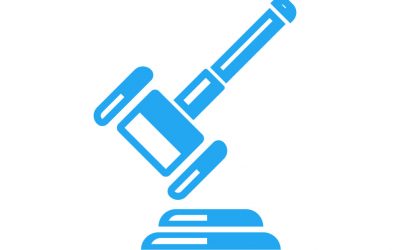
In California, a DUI charge means that the driver was operating the vehicle under the influence of drugs or alcohol. New drivers may not know what DUI means, so our Los Angeles DUI lawyers are here to help.
Alcohol is the most common substance for DUI, but any drug that impairs your ability to drive safely can get you charged with DUI, including cannabis and prescription drugs.
If you’re convicted of DUI, you can expect consequences that will last for years afterward. We encourage you to speak with us if you’ve been arrested for DUI in the Los Angeles Metro Area.
The Legal Definition of a DUI in California
Under California Vehicle Code Section 23152, it is unlawful for any person to drive a vehicle while under the influence of alcohol and/or drugs. You can be charged with a DUI if:
- Your physical or mental abilities are impaired to the extent that you can no longer drive a vehicle with the caution and care of a sober person.
- Your blood alcohol concentration (BAC) is 0.08% or higher, as measured by a breath or blood test.
- You are under the influence of any drug, or a combination of alcohol and drugs, that impairs your driving ability.
You can be charged with a DUI even if you are below the legal limit if the officer believes your driving ability is impaired.
Prescription Drugs and DUI Charges in California
Many people are surprised to learn that driving under the influence of prescription drugs can lead to a DUI charge. If a prescription drug impairs your ability to drive safely, you can face the same legal consequences as driving under the influence of alcohol or illegal drugs.
Common Prescription Drugs That Can Lead to a DUI
Some prescription medications that can impair driving ability and lead to a DUI charge include:
- Opioid painkillers (e.g., OxyContin, Vicodin)
- Benzodiazepines (e.g., Xanax, Valium)
- Sleep aids (e.g., Ambien, Lunesta)
- Muscle relaxants (e.g., Soma, Flexeril)
- Stimulants (e.g., Adderall, Ritalin)
- Antidepressants (e.g., Prozac, Zoloft)
It’s essential to read the warning labels on your prescription medications carefully and discuss any potential side effects with your doctor or pharmacist before getting behind the wheel.
Proving Impairment in a Prescription Drug DUI Case
In a prescription drug DUI case, the prosecution must prove that the medication impaired your driving ability. This can be challenging, as there is no set legal limit for prescription drugs like there is for alcohol. Instead, the prosecution may rely on evidence such as:
- The arresting officer’s observations of your driving and behavior.
- Field sobriety test results.
- Blood or urine test results that show the presence of the prescription drug.
- Expert testimony about the drug’s effects on driving ability.
The “Prescription Defense” in California
In some cases, having a valid prescription for the medication can serve as a defense to a prescription drug DUI charge. This is known as the “prescription defense.” To successfully use this defense, you must prove that:
- You had a valid prescription for the medication
- You took the medication as prescribed
- You were not aware that the medication would impair your driving ability
However, even if you have a valid prescription, you can still be convicted of a DUI if the prosecution can prove that you were impaired while driving.
Penalties for a DUI Conviction in California
The consequences of a DUI conviction in California can be severe, even for a first-time offense. Depending on the circumstances of your case and your prior criminal history, you may face:
- Jail time
- Substantial fines and fees
- Driver’s license suspension or revocation
- Installation of an ignition interlock device (IID)
- Mandatory DUI education classes
- Probation
- Community service
- Increased insurance rates
- A permanent criminal record
Many first-time DUI charges are misdemeanors, but repeated offenses can be charged as a felony. Felons lose many civil rights after conviction, including the right to vote and the right to bear arms.
Aggravating Factors in a California DUI Case
Certain aggravating factors can elevate a standard DUI charge to a more serious offense, resulting in harsher penalties:
- Having a BAC of 0.15% or higher
- Refusing to submit to a chemical test
- Causing an accident or injury while driving under the influence
- Having a child under the age of 14 in the vehicle
- Speeding or reckless driving while under the influence
- Having prior DUI convictions within the past 10 years
If any of these aggravating factors are present in your case, especially if you’re being threatened with a felony charge, you need legal assistance. You must have an experienced DUI attorney to protect your rights and build a strong defense or risk losing your freedom.
The Importance of Legal Representation in a DUI Case
Facing a DUI charge is intimidating, given these penalties, but you can fight back. An experienced attorney can:
- Carefully review the evidence against you and identify any weaknesses or inconsistencies.
- Challenge the legality of the traffic stop, arrest, or chemical testing procedures.
- Negotiate with prosecutors to reduce or dismiss charges.
- Explore alternative sentencing options, such as plea bargains or diversion programs.
- Represent you at trial and present a compelling defense before a judge or jury.
At Los Angeles DUI Lawyer, our team has a track record of success in defending clients against these charges. We’re committed to fighting for your rights and achieving the best possible outcome in your case.
Get Help from a Los Angeles DUI Lawyer
Now that you know what a DUI is in California, it’s time to know what to do if you’re arrested for one. If you or a loved one has been arrested for a DUI in California, don’t wait to seek legal representation. Contact Los Angeles DUI Attorney today for a confidential consultation.






